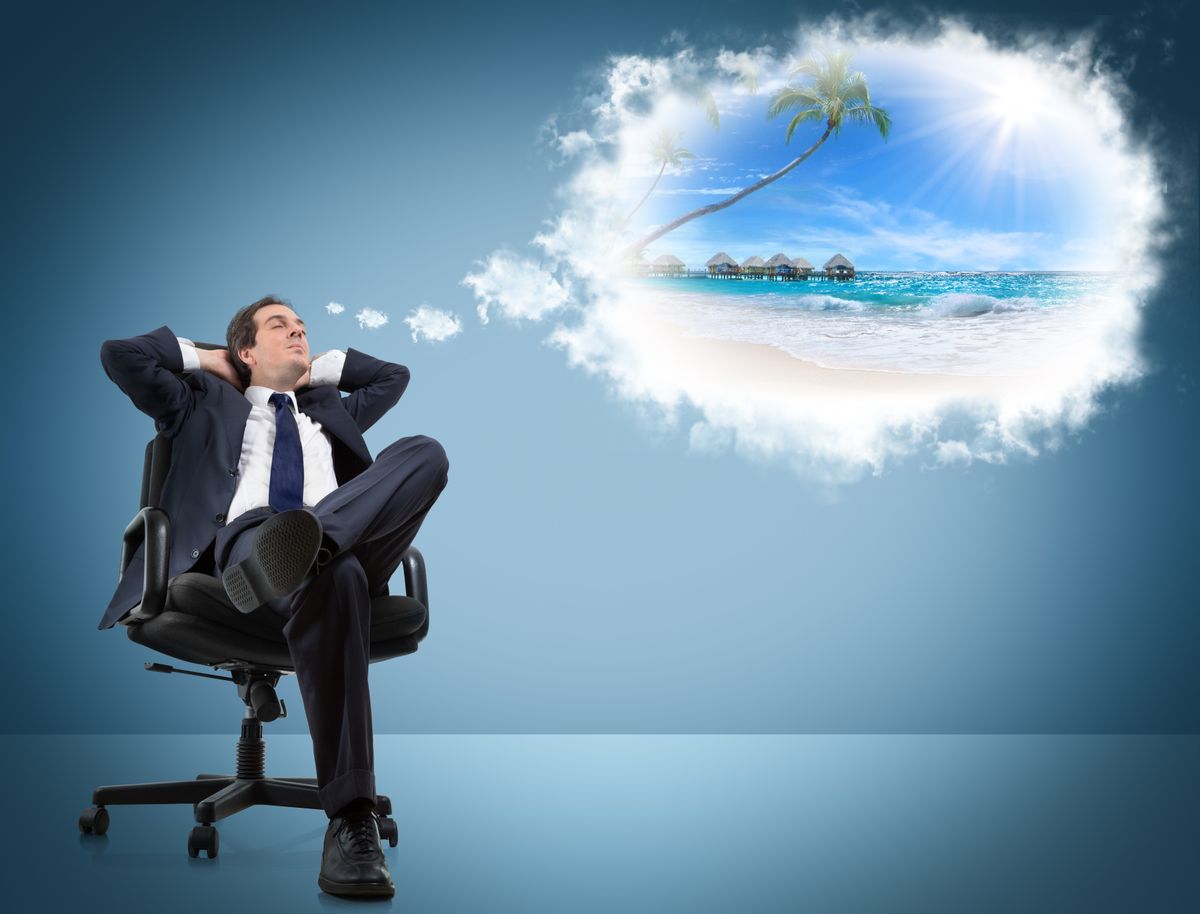
Returning to Work After Vacation: 10 Strategies for Reacclimating
Even entrepreneurs can find it tough going back to the office after a vacation. Here 10 YEC members share their best advice on how to make a smooth transition when returning to work after a trip.
What's your best advice on how to make returning to work after a vacation as smooth as possible?
1. Set up a "pre-vacation" briefing before you leave

Before heading out on vacation, my ultimate checklist item is to set up a "pre-vacation briefing" with my team. I go over all current projects, outline any critical tasks that need attention, and make sure everyone knows their roles while I’m away. This way, I return to a well-organized workspace and can quickly get back on track. It’s all about ensuring a smooth transition and minimizing any disruption during your absence. —Daisy Cabral, Bella All Natural
2. Treat post-vacation days as normal

The greatest tip I have ever received, and that I have stayed religious about implementing to this day, is to treat the days after a vacation as just normal workdays. The purpose of a vacation is to rest and recover from daily stress. This becomes completely redundant if the week before and after are used to make up for this break by working harder, and trying to “catch up.”
Leave your work in order before leaving—anything that’s not urgent can wait. Come back from your vacation and pace yourself to what a normal week looks like. Even without the frantic trying to catch up, you still will, and both you and the vacation you just had will feel better for it. —Alexandru Samoila, Connect Vending
3. Plan for "buffer days" when you first return

Schedule one to two buffer days before jumping back into your full workload—I will return at the start of a weekend or block off a couple of weekdays in my calendar. Buffer days will give you time to transition smoothly, catch up on emails, and mentally adjust to your routine without the stress of immediate deadlines.
I also plan ahead, prioritizing high-priority tasks and setting realistic goals for the first week back, so I'm not completely overwhelmed upon my return. —Jack Perkins, CFO Hub
4. Prepare tasks before leaving

One great tip for returning to work after a vacation is to prepare before you leave. Make sure your tasks are covered by delegating them to teammates or setting up automated systems. This helps prevent work from piling up while you're away.
And if you can't set things up before leaving or there are some tasks that you simply can't delegate, prioritize your tasks when you return. List everything you need to do, figure out which tasks are most urgent, and block out specific times to focus on each one. This approach helps you manage your workload efficiently and reduces stress as you ease back into your routine. —Travis Schreiber, Erase Technologies
5. Set aside dedicated time for catching up and planning

Before going on vacation, setting an out-of-office message informing colleagues and clients of your absence, completing high-priority tasks, and delegating ongoing responsibilities to team members is essential. Upon your return, block the first few hours or even a day on your calendar to catch up on emails, messages, and updates without scheduling meetings during this period. Review all communications to identify urgent issues, create a prioritized task list, and hold a brief meeting with your team to get updates on projects and significant developments.
6. Celebrate progress that occurred while you were gone

The hardest part for me when coming back to work after a break is getting back into the swing of things without feeling like I'm starting from scratch. I tackle this by acknowledging the progress that was made during my time off. Celebrating these achievements, no matter how small, helps me stay motivated and provides a sense of continuity. This practice makes the transition smoother and reenergizes me to contribute further. —Jeffrey Zhou, Fig Loans
7. Set out-of-office autoresponder one day early

I set my out-of-the-office autoresponder to start one day before my vacation and end one day after I'm back. This gives me space to do a one-page directive to my team about how to handle any issues that may arise while I'm gone and lets me slowly get back to my to-do list when I'm back at my desk.
I love the idea of technically being out of the office so I can efficiently knock out any tasks that need my attention before I interface with clients or my team after a vacation. Ideally, I come back on a Friday so technically I'm not back until Monday and have a long weekend to ease into things. —Givelle Lamano, Lamano Law Office8. Don't schedule important meetings the day you return

Do not schedule meetings or make important decisions for the day or two after your return. Use the time to catch up with emails, chat with staff, and see what happened while you were away. There’s nothing worse for a CEO or customer than trying to jump right in with out-of-date information or without an accurate picture of what’s going on. Take the time, get up to speed, make sure you know what’s going on, what has changed, what needs to be done, and what has already been done. That way, when you are back to 100%, you can do so from a position of knowledge and authority. —Sujay Pawar, CartFlows
9. Create a work status report before you leave

Having a status report of all the tasks and progress of exactly where I've left off keeps me at ease during a vacation and organized when I return. It doesn’t have to be detailed or intricate—just a summary that tells me what projects I’m working on and what tasks still need to be done. It gives me an accurate reference when I’m back so I don’t have to spend time and energy remembering where I left off or searching through old emails.
I also include action items or tasks that need to be completed by my team while I’m away. For example, if you have a project that someone else is working on, you can note down what you need them to do before you return. When you come back, you can quickly check if those tasks were completed. —Riley Beam, Douglas R. Beam, P.A.10. Utilize work-management tools

I use a work-management tool to track everything so I don’t come back from a relaxing vacation having to untangle a pile of emails, messages, and tasks that weren’t properly addressed while I was gone. I note any task that needs attention while I’m gone, noting contacts and resources as necessary. When I come back from my vacation, I scan through the task updates to see a snapshot of what happened while I was gone. With a dashboard to organize and visualize what’s left of my workload post-vacation, I can prioritize and work through what’s left systematically.
If you’re stressed the minute you get back from vacation because you didn’t have a good system in place, it can really mess with the positive benefits of PTO and cause more harm, stress, and burnout. —Elisa Montanari, Wrike


